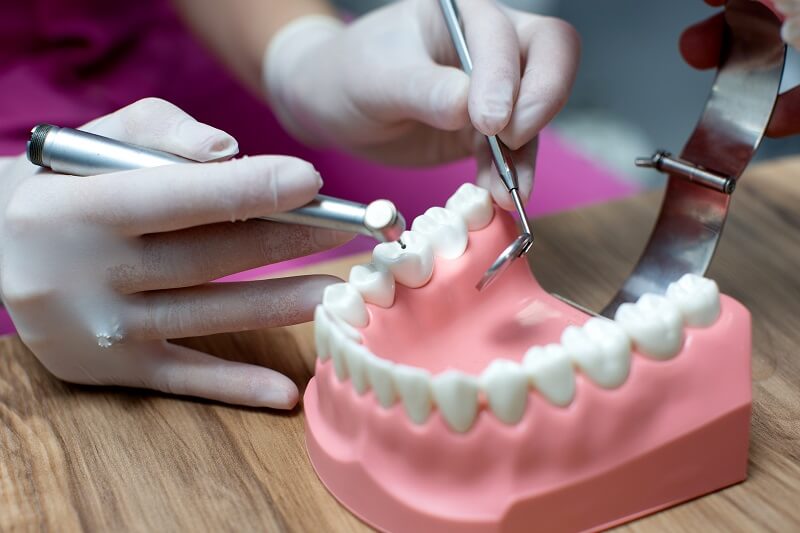Root Canal vs. Extraction: Which is Right for You?
 One of those decisions that can be very paralyzing when choosing between the route of a root canal procedure and extraction is a severely infected or damaged tooth. Both offer advantages and considerations, and as such, it is upon understanding their implications on your comfort, oral health, and long-term results. This article dives into the key factors that help you decide whether your best option is a root canal or tooth extraction.
One of those decisions that can be very paralyzing when choosing between the route of a root canal procedure and extraction is a severely infected or damaged tooth. Both offer advantages and considerations, and as such, it is upon understanding their implications on your comfort, oral health, and long-term results. This article dives into the key factors that help you decide whether your best option is a root canal or tooth extraction.
Root Canals
Benefits of a Root Canal
Maintain Natural Tooth: The most significant advantage of a root canal is that it enables a patient to keep his/her natural tooth. This leads to the maintenance of the proper relationship in the bite, chews efficiently, and preserves oral health.
A more conservative procedure: Though not as invasive as removal with subsequent potential replacement options involving implants or dentures.
Relieves Pain: Contrary to common misconceptions, root canals alleviate the pain caused by an infection or abscess. Modern techniques ensure the procedure is virtually painless.
Cost-Effective in the Long Term: While the upfront cost of a root canal and crown can be significant, preserving your natural tooth can prevent costly complications down the road, such as bone loss or additional dental work.
When Is a Root Canal Recommended?
- When the tooth is infected but structurally sound
- When the infection is limited to the pulp and has not done much damage to the bone or gum around
- When the patient desires his natural tooth
Tooth Extractions
Tooth extraction is the removal of an infected or damaged tooth. Following the extraction, the person can choose a dental implant, bridge, or denture to regain oral functionality and aesthetics.
Advantages of Tooth Extraction
Eliminates Infection: Extraction removes the source of infection entirely, reducing the risk of further complications.
Faster Recovery for Severe Cases: More often than not, a tooth extraction can offer salvation to a severely damaged tooth rather than prolong the root canal process.
Prepares for Replacement Options: In cases where the tooth cannot be saved, extraction paves the way for replacement solutions, such as implants, which provide excellent durability and aesthetics.
When Is Tooth Extraction Recommended?
-
When the tooth is too damaged to be restored
-
When the infection has spread to surrounding tissues or bone
-
When the patient’s budget or circumstances favor extraction over repair
-
When the tooth is causing overcrowding or alignment issues
Key Takeaways
The choice to extract or to get a root canal would require the following considerations
1. Extent of Damage- After a root canal, the crown inserted must withstand and live through that. But sometimes, a tooth may be so badly fractured or decayed that extracting it may be preferred.
2. Cost- While root canals are more expensive initially due to the procedure and crown, it could save you money in the long run by saving your natural tooth. Extraction might be less expensive upfront, but replacement options could be costly.
3. Recovery Time- Generally speaking, root canals have a faster recovery time than extraction and placement do. However, if the situation is very grave, possibly extraction might be quicker for relief and resolution.
4. Cosmetic and functional results- Having your natural tooth remain after a root canal is helpful to preserve the form and function of your smile. In cases where extraction is unavoidable, then implants or bridges can be used to replace aesthetics and function, although they cannot feel as good as a natural tooth.
5. Bone Health- Over time, extracting the tooth may result in bone loss in the jaw. Without a tooth root, the bone around that region starts degenerating. The root canal leaves the tooth intact with the root, and so this degeneration does not occur. If extraction is chosen, the implant stimulates the bone to lose no further.
6. Personal Preference and Lifestyle- Other patients hate the lengthy process of undergoing a root canal and thus opt to have it extracted. Other people appreciate the fact that they have their natural teeth and are willing to take the time and effort involved in a root canal.
Alternatives Following Extraction
If you opt for extraction, then you must consider replacement options to maintain your oral health and prevent shifting of the adjacent teeth. The most common options include:
Dental Implants– They are very strong and function like other natural teeth but can be costly.
Dental Bridges- They serve as a connector between the lay areas where teeth used to be and rely on supporting adjacent teeth.
Partial or Full Dentures- These are removable appliances that replace one or more missing teeth in the mouth.
Discuss this with Your Dentist
It should always be after consulting your dentist. He will assess the condition of your tooth, take X-rays, and discuss your medical history, lifestyle, and preferences to give the best recommendation.
Conclusion
The choice between a root canal and extraction is what decides your oral health, your finances, and your quality of life. Although root canals allow a patient to keep the original natural tooth while keeping long-term oral health, extraction would be preferable for teeth badly damaged by decay or infected widely throughout the tooth. Close working with your dentist will ensure you make the right decision as per your needs and desires. Whether it is a root canal or extraction, in-time treatment will be the key to regaining your smile and also to ensure proper oral health.



 |
|